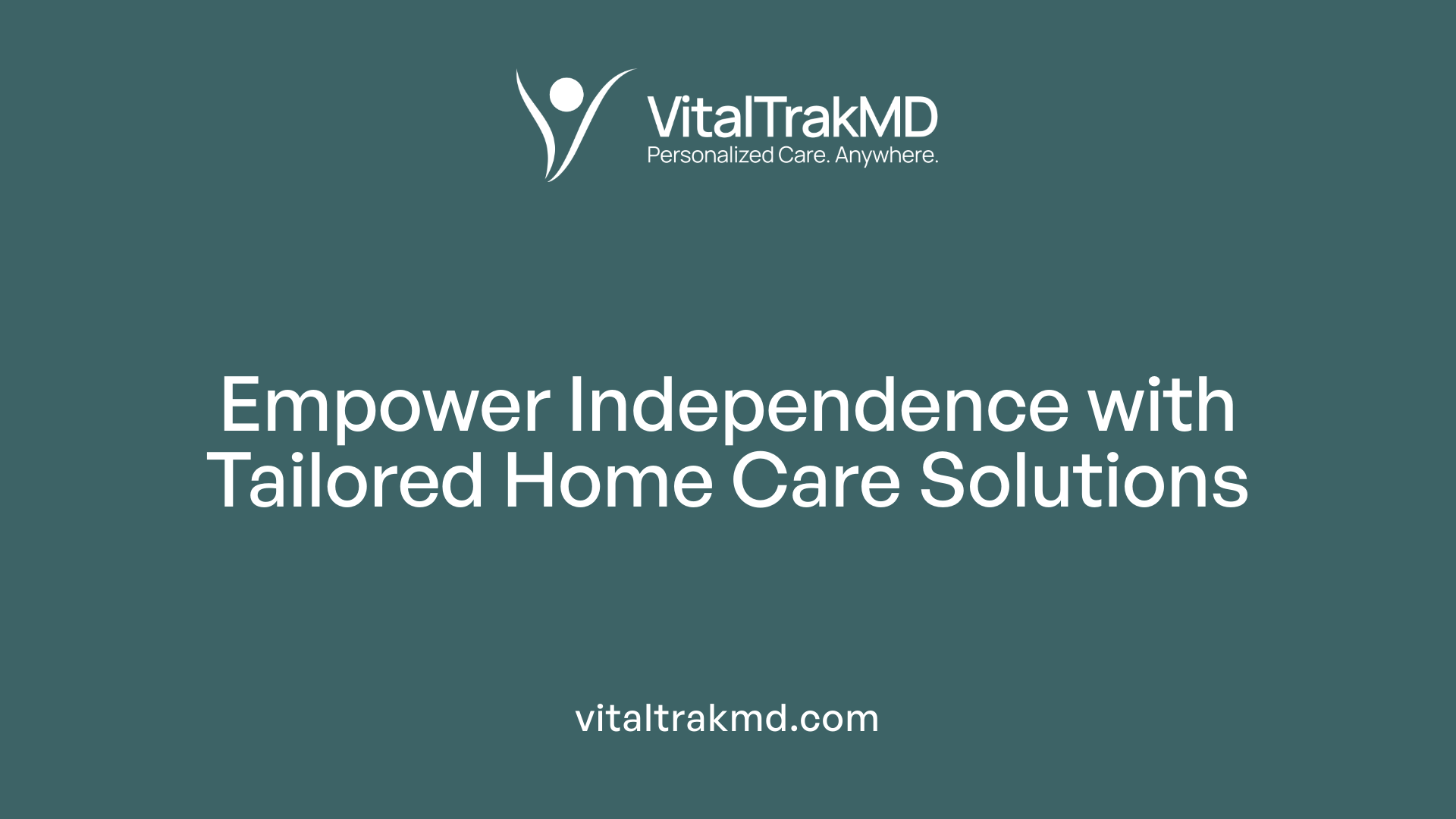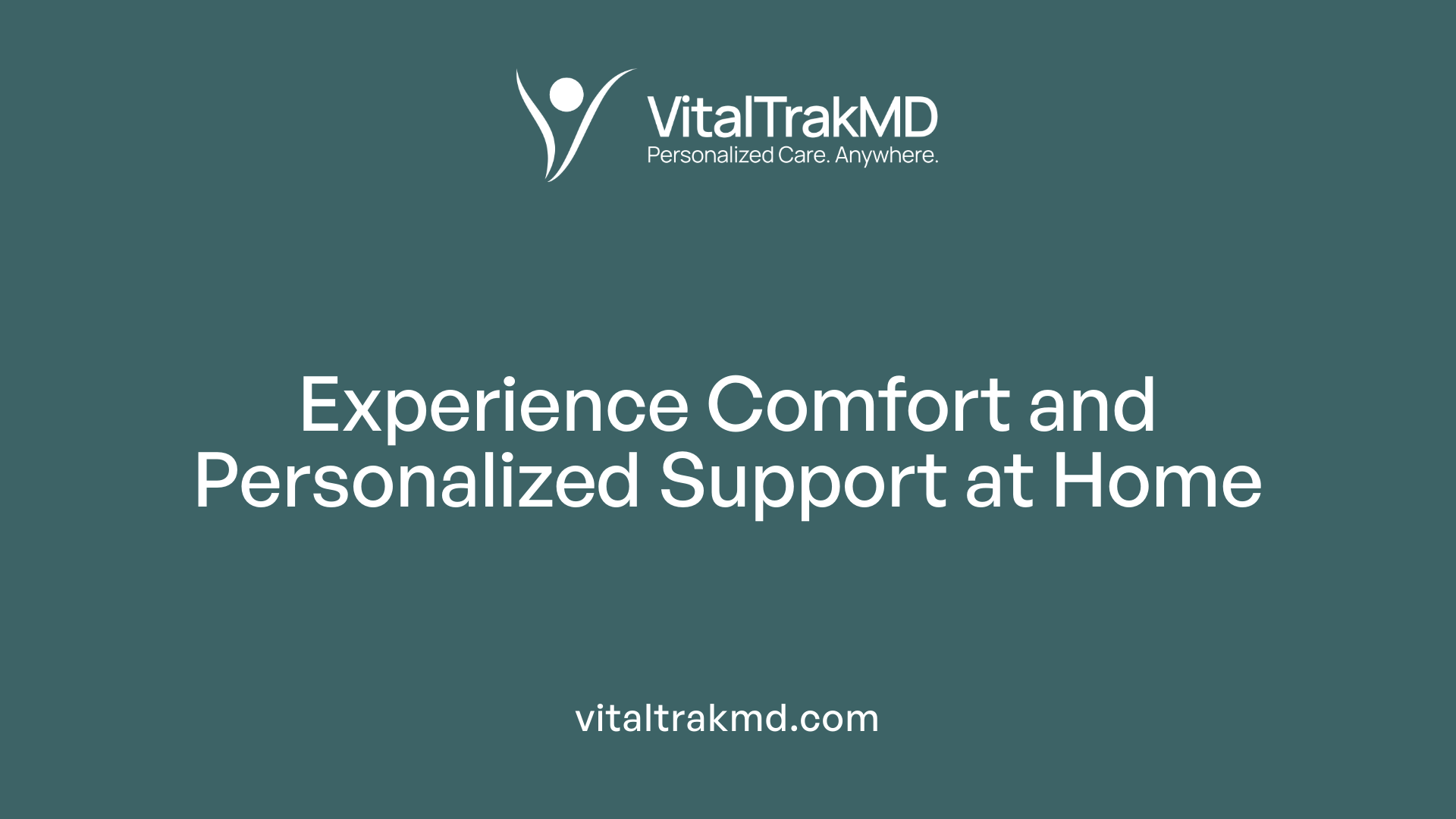Why More Seniors Choose Home-Based Healthcare Options

Understanding the Shift Towards In-Home Care
Across the globe, the aging population is increasingly favoring home-based healthcare options, driven by advancements in medical technology, changing preferences, and a desire to maintain independence. This trend reflects a broader movement towards aging in place, emphasizing comfort, personalized care, and emotional well-being. This article explores why more seniors are choosing to receive healthcare at home, the numerous benefits associated with it, and how it compares to other care options.
Why Seniors Prefer Home-Based Healthcare

What are the main reasons seniors prefer home-based healthcare options?
Many seniors choose home healthcare because it offers a combination of comfort, independence, and personalized support. Being able to stay in their own homes allows older adults to maintain a sense of familiarity and control over their daily routines. This environment fosters emotional well-being by avoiding the stress and anxiety associated with moving to unfamiliar facilities.
Home healthcare services are tailored to meet individual needs, providing one-on-one care from licensed professionals. This personalized approach ensures that seniors receive the exact support they require, whether it’s assistance with medication management, mobility, or daily activities like bathing and meal preparation. The result is improved health outcomes and a better quality of life.
Cost-effectiveness is another significant factor. Compared to long-term stays in nursing homes or assisted living facilities, home care often proves to be less expensive. Families can choose to pay solely for the services their loved ones need, avoiding unnecessary expenses. Insurance programs like Medicare and Medicaid increasingly cover these services, making them more accessible.
Reducing the risk of infections is especially important during health crises like the COVID-19 pandemic. Staying at home minimizes exposure to infectious diseases that can spread rapidly in institutional settings. Additionally, home-based care typically involves fewer strangers coming into the home, further lowering health risks.
Emotional well-being is greatly enhanced when seniors remain connected with their loved ones and community. Home care allows for more frequent family interactions and social participation, helping to combat loneliness and depression. For many seniors, aging in place offers a sense of security, dignity, and independence—values that remain central to their quality of life.
Benefits of Home-Based Healthcare for Seniors

What are the benefits of home-based healthcare for seniors?
Home-based healthcare provides a wide range of advantages for older adults, making aging in place a preferred and practical option. One significant benefit is the personalized nature of the care, often delivered through one-on-one attention from skilled caregivers. This individualized approach ensures that seniors receive support tailored specifically to their needs, whether it involves medication management, wound care, or assistance with daily activities.
Remaining in the familiar environment of their own home is another considerable advantage. Being surrounded by personal belongings and a comfortable setting boosts emotional well-being and fosters a sense of security. Familiar surroundings can also promote faster recovery from illness or injury, as patients tend to heal better in a comforting environment.
Home healthcare is particularly effective in managing chronic conditions like heart, pulmonary, or renal diseases. Regular monitoring and tailored treatments help keep these conditions stable, reducing the likelihood of complications that could lead to hospitalization.
Cost-effectiveness is another notable benefit. Compared to long hospital stays or assisted living facilities, home health services generally cost less and are more adaptable to a person’s financial situation. They can also lower hospitalization rates by providing early intervention, thus preventing health crises.
Beyond physical health, home healthcare offers substantial emotional support and companionship. Regular interaction with caregivers helps alleviate loneliness and isolation, common concerns among seniors living alone. This social connection is vital for mental health and overall quality of life.
Additionally, in-home services promote safety by reducing fall risks through modifications and supervision, allowing seniors to maintain independence longer. Care plans can be adjusted over time to match changing health needs, ensuring continuous support.
In summary, home-based healthcare fosters safety, independence, and positivity in aging, making it a valuable option for seniors aiming to sustain their quality of life while remaining at home.
Supporting Aging in Place and Enhancing Autonomy

How does home healthcare support aging in place and enhance seniors' autonomy?
Home healthcare is essential in enabling seniors to stay in their own homes while maintaining independence. It offers a range of personalized services tailored to individual needs, including assistance with daily activities such as bathing, dressing, meal preparation, medication management, and transportation. These services are provided by licensed professionals who focus on promoting safety and helping seniors remain self-sufficient.
Making home modifications is a crucial part of aging in place. Installing grab bars, ramping entryways, and adding medical alert systems create safer environments. These enhancements help reduce risks of falls and injuries, making daily routines safer and easier.
Technology also plays a vital role. Telehealth systems, remote monitoring devices, and AI solutions allow seniors to manage health conditions proactively. These tools enable faster communication with healthcare providers and provide peace of mind for both seniors and their families.
Community resources—including local agencies, social support groups, and emergency services—support seniors’ well-being outside of direct caregiving. These resources facilitate social interaction, provide transportation options, and deliver assistance when needed, all contributing to a sense of connectedness and independence.
Safety features integrated into homes contribute further to this goal. Automated lighting, fall detectors, and emergency response devices ensure that help is accessible immediately if an accident occurs. Such features allow seniors to perform daily tasks with confidence.
Together, these services and adaptations support aging in place by addressing medical, safety, and social needs holistically. They empower seniors to maintain control over their lives, to stay active in their communities, and to enjoy a higher quality of life—all within the comfort and familiarity of their own homes.
Comparing Home Healthcare to Assisted Living and Nursing Facilities

How does home healthcare compare to assisted living or nursing facilities?
Home healthcare offers a highly personalized approach, providing one-on-one support directly in the comfort of a senior’s own home. This setup allows individuals to enjoy tailored assistance with daily activities such as bathing, dressing, medication management, and even companionship. Because services are delivered in a familiar environment, seniors often experience greater emotional comfort and independence.
In contrast, assisted living facilities are communal settings that provide a wide range of services including meals, social activities, transportation, and around-the-clock care. These environments are designed to promote social engagement and safety, making them suitable for seniors needing more extensive support.
When comparing costs, home healthcare typically proves more economical since families pay only for the specific services their loved ones require, avoiding the extra amenities associated with larger facilities. Assisted living involves a comprehensive fee covering housing, meals, and care, which can be more expensive over time.
Social engagement is another crucial difference. Assisted living offers residents abundant opportunities to socialize, participate in organized activities, and stay connected with peers. Home healthcare can incorporate social elements through visits, community programs, or virtual interactions but generally relies more on family and community involvement.
Regarding safety and comfort, in-home care enables seniors to remain in a familiar, controlled environment where modifications can be made for safety, such as installing grab bars or medical alert systems. Assisted living facilities are designed with safety features but involve shared spaces, which may pose risks during health outbreaks or infections.
Ultimately, the choice hinges on individual needs, health conditions, financial resources, and personal preferences. Those seeking to stay independent and age in place typically prefer home healthcare, while individuals requiring more structured support and social interaction might benefit from assisted living. Both options aim to promote a dignified, quality lifestyle tailored to the resident’s circumstances.
| Aspect | Home Healthcare | Assisted Living | Purpose/Benefits |
|---|---|---|---|
| Personal Support | Highly individualized, one-on-one care tailored to routines | Structured activities, shared communal support | Tailored to mobility, health conditions, and personal preferences |
| Cost | Often more affordable, pay for specific services | Usually higher, all-inclusive monthly fees | Cost-effective for those needing limited assistance |
| Social Interaction | Varies, depends on visits and community involvement | Rich social environment with organized activities | Enhances mental and emotional well-being |
| Safety & Comfort | Custom safety modifications at home | Built-in safety features, 24/7 staff support | Ensures safety while maintaining independence |
| Fit for Needs | Ideal for those wanting to stay at home, independence | Suitable for those needing more predictable, comprehensive care | Meets diverse health needs with options for increasing support |
Choosing between these options depends on personal preferences, health requirements, and financial considerations. Both strive to enhance quality of life but do so through different environments and levels of support.
Why Patients Favor Home Health Care

Why might a patient prefer home health care over other types of care facilities?
Many patients choose home healthcare because it allows them to stay in a familiar environment while receiving essential medical support. Being in a comfortable setting helps boost emotional well-being, which is crucial for recovery and overall health.
Home care offers the chance to maintain daily routines and engage in favorite activities, fostering independence. This sense of control is often absent in traditional nursing homes or hospitals, making patients feel more at ease.
Cost is another significant factor. Home healthcare tends to be more affordable than long-term stays in assisted living or institutional settings. It reduces expenses related to lodging and hospital overhead and has been linked to fewer hospital readmissions.
Furthermore, receiving care at home facilitates better communication among healthcare providers, caregivers, and the patient. This coordination leads to safer care, personalized treatment plans, and quicker adjustments to changing needs.
Overall, the combination of emotional comfort, cost-effectiveness, improved safety, and personalized support makes home healthcare a preferred choice for many individuals. It enables patients to recover faster, stay connected with loved ones, and enjoy a better quality of life.
A Future of Personalized and Independent Elder Care
As the demographic landscape shifts and the desire for independence remains strong, home-based healthcare continues to rise in popularity among seniors. Combining medical support with personalized, in-home services not only enhances safety and comfort but also fosters emotional well-being and social connectedness. Supporting aging in place through innovative technologies, tailored services, and community involvement paves the way for a future where seniors can live comfortably, safely, and with dignity in their own homes. The ongoing evolution of home healthcare promises a more inclusive, cost-effective, and patient-centered approach to elder care, aligning with the values and preferences of today’s aging population.
References
- The Growing Demand for Home Healthcare | Why Families Choose ...
- Home Health Care: Why it is Not Just for the Elderly
- Why Are More People Choosing Home Care Over Facilities as They ...
- Aging in Place: Growing Older at Home
- Top Reasons Why Home Care is Better for Seniors
- Preserving the Choice to Age at Home: Understanding the ...
- Why Many Seniors Choose Home Health Care? | Bell Tower HHC
- 5 Reasons Why Home Healthcare for Seniors is best. -
- Aging in Place: Are We Prepared? - PMC - PubMed Central
Recent articles
Want to Feel Better and Live Healthier?
Join hundreds of patients taking control of their health with personalized care that fits their life – not the other way around.
Rated 4.8/5 by 32+ customers







